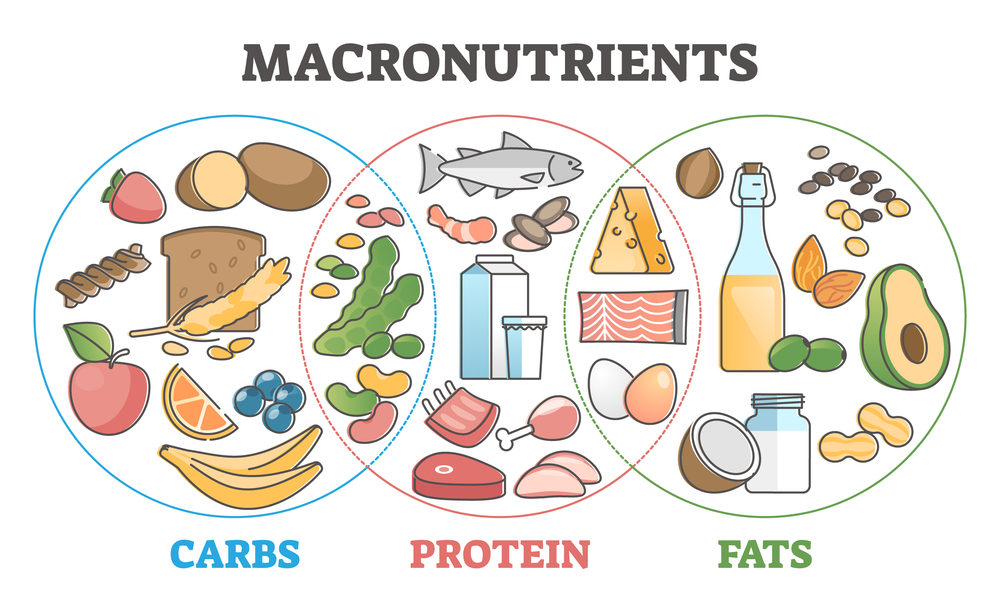As a runner, I know that success doesn’t just come from the hours of hitting the pavement; it’s also about what’s on my plate. Macronutrients for runners are the dietary cornerstones that fuel my runs, aid in recovery, and keep my body functioning at its peak.
Macronutrients for runners include carbohydrates, proteins, and fats each playing a unique role in energy production and recovery for runners. Carbohydrates are mainly responsible for providing the quick energy I need when running. Proteins are crucial for the repair and regrowth of muscle tissue, which is constantly broken down and rebuilt through training. Fats, often misunderstood, also serve as a vital energy source, especially during long-distance runs.
Because running demands so much from the body, it’s essential not to overlook the importance of micronutrients vitamins, and minerals that support overall health. They work in concert with macronutrients to ensure my body operates optimally.
Let’s pivot to carbohydrates, often considered the most critical macronutrients for runners. It’s important to understand the different types and how they impact performance, which I will discuss in the next section.
Carbohydrates: The Runner’s Power Source

Carbohydrates
If you run, your body needs fuel, much like a car needs gas. And for you, carbohydrates are that premium fuel. They’re stored in your muscles and liver as glycogen, which you then convert into glucose. Glucose keeps you going, whether you sprint or embark on a marathon.
The carbs you eat come in two main forms: complex and simple. Complex carbohydrates, like whole grains and legumes, offer a steady release of energy because your body breaks them down slowly. Simple carbohydrates are the sugars found in fruits, honey, and sugar-sweetened snacks. These provide a quick energy boost but fade just as fast, sometimes leading to the unwanted ‘crash’ mid-run.
Understanding the glycemic index (GI) will help you gain energy from carbohydrates efficiently. The GI rates how quickly foods raise blood sugar levels. Low-GI foods provide a sustained energy release, while high-GI foods might spike your energy and then plummet.
But when should you have carbs? Before running, eat a meal high in complex carbs a few hours before to build up your glycogen stores. You might opt for a high-GI snack for immediate energy in the long run. After running, replenish with carbs to recover your glycogen levels for your muscles to heal and grow.
Protein: Building and Repairing Muscle

Proteins
Muscle recovery and rebuilding are crucial to a runner’s post-workout routine. Protein steps into the limelight here, offering the building blocks required for repairing muscle fibers damaged through running. When jogging or running long distances microscopic tears occur in the muscles. Protein aids in healing those tears, leading to stronger muscles over time.
The question of ‘how much protein’ is one I hear frequently. The answer varies, depending on training intensity, body weight, and individual health goals. A general guideline suggests about 1.2 to 2.0 grams of protein per kilogram of body weight per day for endurance athletes. Chicken, fish, dairy, eggs, and legumes are some of the top-quality sources that can help meet this requirement.
Timing is another key element. Consuming protein post-workout can be particularly beneficial for muscle recovery. Runners should have a protein-rich snack or meal within 30 minutes to two hours after running. This period is known as the ‘anabolic window’ and is believed to be the most optimal time for muscle repair.
The choice between plant-based and animal-based proteins is personal but warrants consideration. Plant-based sources, such as beans, lentils, tofu, and certain grains, provide added fiber and other nutrients. Animal proteins, on the other hand, are ‘complete proteins’ containing all essential amino acids. Whichever path a runner chooses, ensuring adequate protein intake is vital.
Fats: The Underrated Fuel for Long-Distance Running

Fats
After discussing carbohydrates and proteins, I need to highlight the significance of fats in macronutrients for runners. For some reason, fats have been relegated to the sidelines, but are more than a fuel reserve. Long-distance runners, in particular, can benefit from understanding and utilizing fats to their advantage.
Fats are a dense energy source and are important during prolonged physical activity when carbohydrate stores deplete. Knowing this, if you’re a runner aiming for longer distances, integrating healthy fats into your diet becomes essential.
It’s crucial to distinguish between healthy and unhealthy fats. Trans fats and certain saturated fats are the ones I advise you to steer clear of. Monounsaturated and polyunsaturated fats—found in avocados, nuts, seeds, and certain oils—support heart health and are a source of energy.
As you plan your nutrition, aim to include a variety of fat sources. Consider adding a handful of nuts to your snack list, cooking with olive oil, or incorporating fatty fish into your meals a few times a week.
Fats shouldn’t be feared or avoided; they should be understood and smartly incorporated into your diet. Balancing carbohydrates, proteins, and fats, creates a robust nutritional strategy that supports your running goals and overall health.
Conclusion
When running, it is as much about the miles under their feet as nutrition fueling their steps. Understanding the distinct roles of macronutrients for runners—carbohydrates, proteins, and fats— offers a foundation for enduring the long runs and thriving through them. Carbohydrates stand out as the best energy source, proteins as the building blocks for muscle repair and growth, and fats as the sustained energy source, particularly vital for the long-distance enthusiast. Moreover, the strategic inclusion of micronutrients ensures the body’s seamless operation and recovery, highlighting a holistic approach to runner’s nutrition.
As we navigate through the complexities of dietary choices, it’s clear that a balanced and informed approach to nutrition can significantly enhance performance, recovery, and overall well-being. Whether lacing up for a sprint or gearing up for a marathon, remember that your diet is your fuel. By making educated choices about what you eat, you’re not just feeding your body, you are fueling your journey toward achieving your running goals and beyond.

